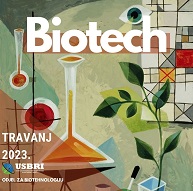Neanderthals' genetic legacy: Humans inherited variants affecting disease risk, infertility, skin and hair characteristics
Remnants of Neanderthal DNA in modern humans are associated with genes affecting type 2 diabetes, Crohn's disease, lupus, biliary cirrhosis and smoking behavior. They also concentrate in genes that influence skin and hair characteristics. At the same time, Neanderthal DNA is conspicuously low in regions of the X chromosome and testes-specific genes.
The research, led by Harvard Medical School geneticists and published Jan. 29 in Nature, suggests ways in which genetic material inherited from Neanderthals has proven both adaptive and maladaptive for modern humans. (A related paper by a separate team was published concurrently in Science.)
"Now that we can estimate the probability that a particular genetic variant arose from Neanderthals, we can begin to understand how that inherited DNA affects us," said David Reich, professor of genetics at HMS and senior author of the paper. "We may also learn more about what Neanderthals themselves were like."
In the past few years, studies by groups including Reich's have revealed that present-day people of non-African ancestry trace an average of about 2 percent of their genomes to Neanderthals -- a legacy of interbreeding between humans and Neanderthals that the team previously showed occurred between 40,000 to 80,000 years ago. (Indigenous Africans have little or no Neanderthal DNA because their ancestors did not breed with Neanderthals, who lived in Europe and Asia.)
Several teams have since been able to flag Neanderthal DNA at certain locations in the non-African human genome, but until now, there was no survey of Neanderthal ancestry across the genome and little understanding of the biological significance of that genetic heritage.
"The story of early human evolution is captivating in itself, yet it also has far-reaching implications for understanding the organization of the modern human genome," said Irene A. Eckstrand of the National Institutes of Health's National Institute of General Medical Sciences, which partially funded the research. "Every piece of this story that we uncover tells us more about our ancestors' genetic contributions to modern human health and disease."
More at: http://www.sciencedaily.com/releases/2014/01/140129134956.htm
Original articles: Sriram Sankararaman, Swapan Mallick, Michael Dannemann, Kay Prüfer, Janet Kelso, Svante Pääbo, Nick Patterson, David Reich. The genomic landscape of Neanderthal ancestry in present-day humans. Nature, 2014; DOI: 10.1038/nature12961
Contact
Radmile Matejčić 2
51000 Rijeka
Croatia
Tel. +385 51 584 550
ured@biotech.uniri.hr
OIB (VAT): 64218323816
IBAN: HR3724020061400006958
Radmile Matejčić 2, O-047
http://studentska.uniri.hr/
Biotechnology for the Life Sciences e-mail :














